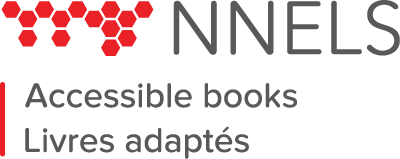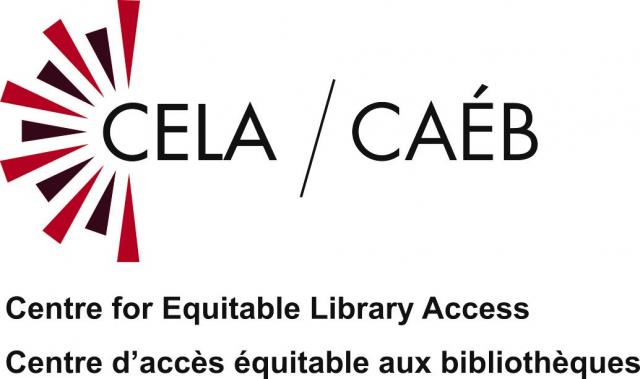The Boyne Regional Library is committed to consistent improvement in the accessibility of our resources, building, and services.
Accessible Resources And Services
The Library now has several services for patrons with any print impairment. A print impairment can be:
- Visual: severe or total impairment of sight or the inability to focus or move one’s eyes
- Physical: impairment in holding or manipulating an item such as a book
- Cognitive or comprehension impairment
Accessible Alternate Formats
NNELS (National Network for Equitable Library Service) and CELA (Centre for Equitable Library Access) are national organizations that provide alternate format materials through public libraries. Contact us for more information on these services, and for assistance in using them. We’ll help you or a caregiver get started!
The National Network of Equitable Library Service (NNELS)
 NNELS is a repository of content owned and sustained by Canadian public libraries, working with partners to make copies of books in accessible formats for readers in Canada who have print disabilities. It is an online collection of downloadable eBooks and audiobooks for library members with print disabilities. Registration is required to access the NNELS catalogue.
NNELS is a repository of content owned and sustained by Canadian public libraries, working with partners to make copies of books in accessible formats for readers in Canada who have print disabilities. It is an online collection of downloadable eBooks and audiobooks for library members with print disabilities. Registration is required to access the NNELS catalogue.
About & Register: NNELS Website | Already registered? NNELS Log In | Staff: NNELS for Library Staff
The Centre for Equitable Library Access (CELA)
 The Centre for Equitable Library Access, CELA, is a national not-for-profit organization that provides accessible reading services to the approximately 3 million people across Canada with print disabilities. Through these services we can now provide audiobook, eBook and e-Braille downloads, and/or physical CDs to patrons who identify themselves as having a print disability.
The Centre for Equitable Library Access, CELA, is a national not-for-profit organization that provides accessible reading services to the approximately 3 million people across Canada with print disabilities. Through these services we can now provide audiobook, eBook and e-Braille downloads, and/or physical CDs to patrons who identify themselves as having a print disability.
About & Register: CELA Website | Already registered? CELA Log In | Staff: CELA for Library Staff
Disability-themed Book Lists
Collections of Representative Content (published by AccessibleLibraries.ca) — Library collections should represent the community, which, of course, includes persons with disabilities. Browse the curated disability-themed lists for adult and teen audiences for a title that interests you. If you can’t find it in the Library Catalogue then please contact us.
Homebound Services
If a patron is unable to visit the library due to reasons of disability, extended illness or accessibility considerations, there are several Homebound Services options available.
In Library Accessible Collection
The Boyne Regional Library strives to provide materials for people of all ability levels. Browse through the Accessible Collections to learn more.
Interlibrary Loan Options
We can help search and request audiobooks and large print books from other libraries in Manitoba through interlibrary loans. We can also help request digital audio kits through interlibrary loans for patrons who qualify.
Subject Guides
- Literacy & Struggling Readers — a subject guide that contains links to local and government resources, including information about dyslexia.
Environmental Accessibility
With a major renovation completed in 2020, the Boyne Regional Library became an accessible building. This includes, but is not limited to:
- Designated accessible parking spot
- Ramp entrance
- Power operated front doors
- Highly visible and easy to locate front counter
- Clear signage with colour contrast
- Wide aisles enabling mobility space
- A variety of seating options
- Power Mag Plus Magnifier in public reading area and available to loan out
- Accessible public computers featuring a height adjustable desk, large monitor, and large print contrast keyboard
Accessibility Feedback
The Boyne Regional Library aims to be an inclusive place for all to learn, connect and explore.
It is important to us that we know and understand the barriers you may face when accessing our services or visiting our facility so that we can better serve.
Please email or phone our Head Librarian, Sandra Yeo, at boyneregionallibrary@outlook.com or (204) 745-3504.
Please include the following information:
- What you were trying to access
- Where the barrier happened and what the barrier was
- Any recommendations that you might have
Your valued feedback will be used to improve accessibility at the library by helping us understand accessibility issues, trends and patterns, as well as allow us to identify future accessibility projects.
